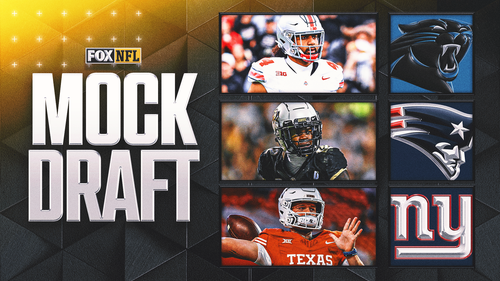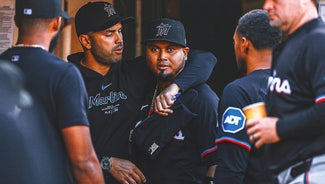





































































































































Will Clemens lawyers challenge evidence?
Defense lawyers for Roger Clemens said Friday they may challenge key physical evidence that his former strength trainer, Brian McNamee, has provided to prosecutors in the former pitcher's perjury trial.
The lawyers told U.S. District Judge Reggie Walton at a hearing that unspecified developments that prosecutors made them aware of over the last few weeks raised issues about the chain-of-custody of the evidence.
McNamee has said he repeatedly injected Clemens with steroids and human growth hormone, and saved some of the needles and gauze for years. Clemens' lawyers say that if the government can't prove the chain-of-custody, they will challenge McNamee's evidence, which is central to the prosecution's case.
Walton declared a mistrial last July on only the second day of testimony in the first trial, after prosecutors showed jurors evidence that had been ruled inadmissible. Jury selection in the new trial begins Monday.
Clemens is accused of lying to Congress when he said he never used performance-enhancing drugs.
On a related note, Judge Walton turned down a request for a lawyer representing The Associated Press and The New York Times to unseal a government motion that prosecutors fear could tarnish McNamee in the eyes of potential jurors.
On Thursday, the government submitted a public notice that it had filed a sealed motion on March 19 to keep some unspecified information from the public. Walton said he shared the prosecutors' fears that the information, if publicly disclosed, would complicate getting an impartial jury. He described it as information the government knows about, and fears would tarnish a witness.
Clemens' attorney Rusty Hardin, who also objected to sealing the motion, said that prosecutors were ''seeking to protect their key witness.'' He described it as eight things the government wants to bar the Clemens' defense team from presenting to the jury.
''We have never filed a document to introduce this evidence,'' he said.
Walton asked Hardin how Clemens was harmed by the motion remaining under seal.
Hardin said that the public has a right to know if Clemens is receiving a fair trial.
''We have a right for you to be judged by the public too,'' he told the judge. He added that there wasn't anything particularly unique about the motion that prompted the ''extraordinary'' step of sealing it.
But prosecutor David B. Goodhand said it wasn't like other motions, because the sealing follows from sealed material in state court proceedings that Goodhand did not further describe.
Walton said he will permit the filing to remain under seal until the end of the trial, or until the defense indicates it will try to use the material, because the jury will be seated by then.
The lawyer for AP and the Times, Alia Smith, asked Walton if he would unseal the motion once the jury is seated.
''I'll have to think about that,'' Walton responded.
Another lawyer for Clemens, Michael Attanasio, said that the sealed information mentions McNamee, his wife, and his household - which is where he kept the physical evidence against Clemens.
McNamee won't be entering the courtroom with a spotless history. He provided drugs to several professional baseball players and has acknowledged he hasn't always told the truth about Clemens' drug use and other matters. McNamee initially denied giving Clemens drugs, before admitting to federal agents he injected the pitcher.

Yankees slugger Aaron Judge ejected for first time in his career

2025 NFL mock draft: Who are next year's top prospects

Everything to know about FOX Saturday Baseball: Mariners-Astros, Mets-Rays

Nationals, Orioles will be first MLB teams to wear City Connect jerseys against each other

Phillies' Trea Turner to miss at least six weeks with a left hamstring injury

MLB's best hitter? Mariners contenders? Rays done? Trade Verlander? 5 burning questions

20 Best pitchers in MLB 2024: Ranking the top 20 starters

Reuniting Rickey Hill with his ring, 37 years later


Yankees slugger Aaron Judge ejected for first time in his career

2025 NFL mock draft: Who are next year's top prospects

Everything to know about FOX Saturday Baseball: Mariners-Astros, Mets-Rays

Nationals, Orioles will be first MLB teams to wear City Connect jerseys against each other

Phillies' Trea Turner to miss at least six weeks with a left hamstring injury

MLB's best hitter? Mariners contenders? Rays done? Trade Verlander? 5 burning questions

20 Best pitchers in MLB 2024: Ranking the top 20 starters

Reuniting Rickey Hill with his ring, 37 years later
